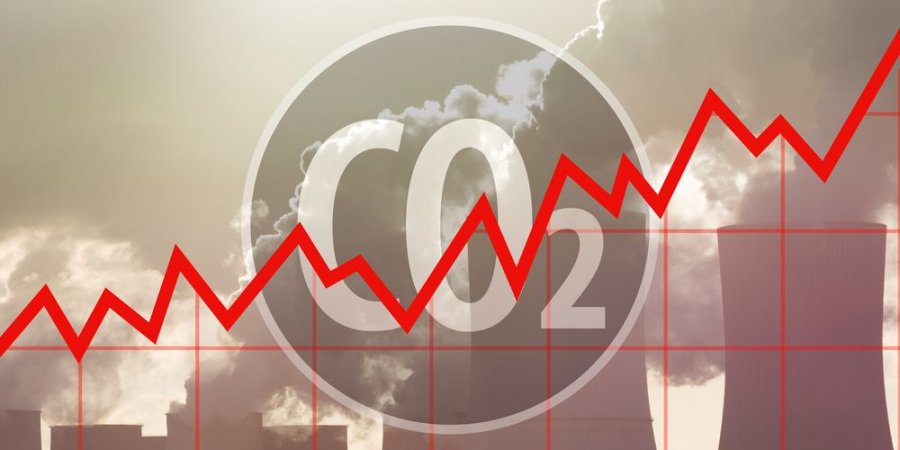China has been urged to undertake a major reform of its emissions trading system (ETS) to boost global decarbonization and prepare to pay the CBAM (EU's carbon import adjustment mechanism) carbon duty.
Currently, the ETS applies only to power plants, and the cost of quotas reaches €7-8, which is ten times less than the current price of emission permits in the EU, CHOICE reports.
China plans to reach an absolute peak in greenhouse gas emissions by 2030 and climate neutrality by 2060. The country's decarbonization is critical to limiting global warming, as China generates 26% of all human emissions. The country launched the ETS in 2021 after a series of pilot projects.
The article says that thanks to the ETS, the European Union has managed to reduce emissions from power plants and industry by 37% since 2005. However, the European and Chinese systems are significantly different, because:
- in China, ETS covers only the operation of power plants, and in the EU – power and heating plants, industrial production facilities such as oil refineries, cement and steel plants, as well as intra-European flights and maritime transport. Currently, China's ETS includes more than 2,000 companies that produce about 4.5 billion tons of carbon dioxide annually;
It is noted that in 2016, the Chinese ETS was planned to expand to the most carbon-intensive sectors of the economy, in particular to the production of iron and steel, aluminum, cement, and the paper industry.
The system is expected to expand to cement and aluminum production in 2025 or earlier. More market participants will lead to a high-quality price signal, which will lead to more activity in the market.
- The EU ETS has a set limit on total greenhouse gas emissions, which decreases each year, and companies trade excess allowances with each other. However, the Chinese system does not have an absolute limit, that is, it is not a cap-and-trade system.
The material added that emission quotas in the Chinese system are allocated free of charge depending on how much electricity a given power plant produces. Although the European system also has free allowances, power plants have not received them since 2013.
Since October 1, 2023, the EU has launched the first stage of the implementation of CBAM, during which importers only have to report their emissions. The payment of the carbon tax will start on January 1, 2026, when companies will receive CBAM certificates and pay the difference between the local price for greenhouse gas emissions and the European one. CBAM covers imports of iron and steel, cement, fertilizers, electricity, aluminum and hydrogen.
It is noted that the carbon tax will greatly affect China, because the country accounts for 10% of all imports in the bloc. Therefore, it is important for the country to reform the ETS so that the money for emissions goes to the Chinese budget, not the European budget.
"The launch of China's carbon market cannot yet be called successful. If the system is to effectively reduce emissions, China's ETS should set emission limits, end over-allocation and expand to other industries," the article said.
CHOICE added that the European carbon market also got off to a less than ambitious start. Therefore, China's path can serve as a model for other countries to implement a domestic carbon market.
Earlier, Ecopolitic wrote, that China has launched the Certified Emissions Reduction (CCER) program, which allows companies in certain industries to trade their carbon emission reduction figures after voluntarily participating in measures to reduce them.
As EcoPolitic previously reported, in the UK during the week from January 29 to February 2 the price of carbon allowances fell to a record low of $40 (£31.48).





